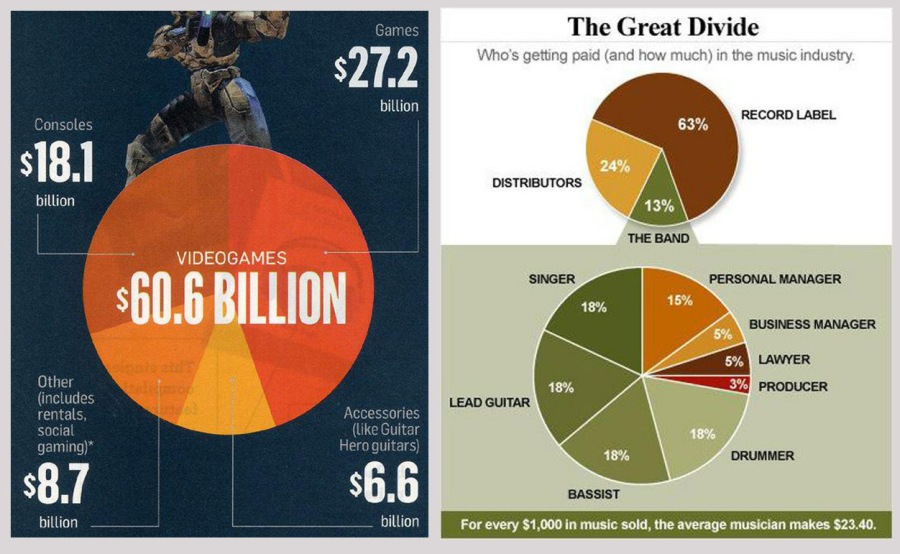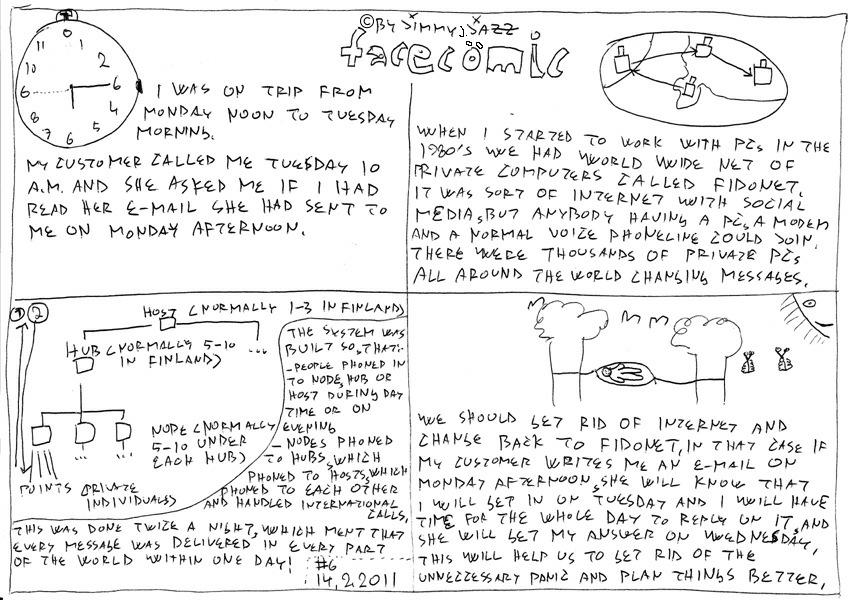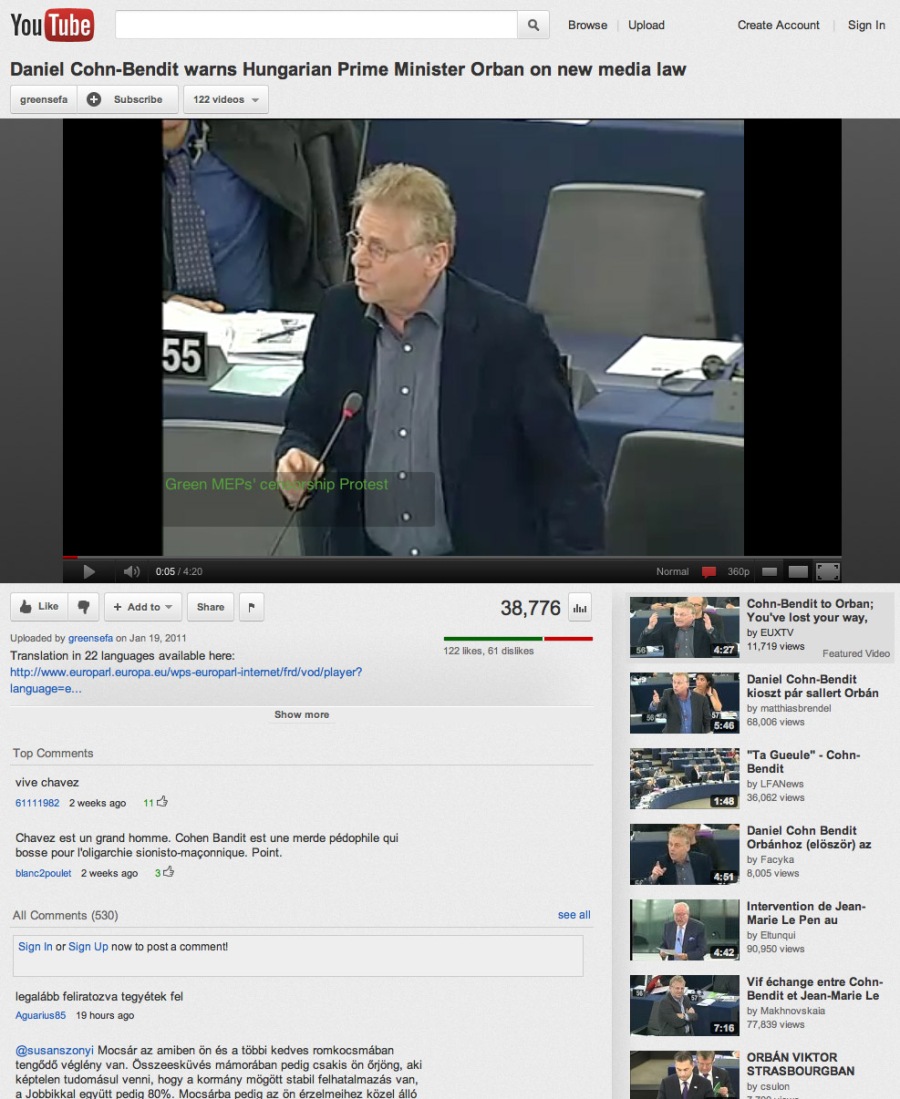Newspaper heading these last days on the Dutch Stichting Brein (Foundation Brain) forces providers to effect an INTERNET BLOCKADE against Pirate Bay web sites“. The Foundation Brein received on January the 11, 2012 a court order that forces some of the big internet providers in the Netherlands (Xs4all and Ziggo at first, T-Mobile and UPC are on the list) to block internet services that Brein claims to be infringements of copyright and intellectual property. The blockade is aimed at sites of, and related to, ‘Pirate Bay’. The court order (1) mentions 24 internet addresses to be blocked. Already at court, Stichting Brein did make some changes in this blockade-list by taking off 4 addresses, that would take off-line web services that had little or no relation with Pirate Bay activities seen as infringements (one of them was a web site with educational movies for young people). It is in the same week that Dutch internet service providers (and 20 search warrants in eight other countries) have been forced to take the domain MegaUpload off line. The Dutch firm LeaseWeb – working for MegaUpload – saw 690 computer servers sealed (storing 15 of the total 25 ‘petabyte’ of data used by MegaUpload) by the Dutch Tax Authority (FIOD), executing an order of the American FBI. This series of events prompted a Green Left member of parliament (Arjen El Fassed) to ask questions to the Dutch government about this whole sale anti-piracy operations, whereby illegal and legal forms of data-traffic are not properly separated:
“Operations like this cause huge damage to the freedom and openness of the internet.”
I see as much Right as Wrong with CopyRight as it is practiced by the actual Media Content Industry – and Stichting Brein is – first of all – a tool of those corporate interests, though they like to pose as defenders of creative workers.
There is much to debate about copyright: what it once was, what it became and how to rethink the idea of claiming ownership on things reproducible for the future. As our media have changed dramatically, the idea and practical application of ownership of content should also be open to change. The same firms that invent and produce – endless and more and more quickly outdated – hardware devices, are producing and monopolising the content to be displayed on them, making profits on both software and hardware. There are many creative alternatives for intellectual property of content and distribution of “profits” in the making, that go beyond the singular ‘big players only’ approach, where content creators have little to no say and the content consumers are only seen as cattle to be exploited. ‘Creative Commons‘, ‘The Future of Music Coalition‘, and many more… When analysing how profits are made and revenues are distributed fairness for those who actually do the ‘creative work’, is hard to find.

Two recent examples that show how media industry both pushes and earns from selling hardware and software (content) and what the practice of sharing is when it comes to those actually producing 'intellectual property'. For sources see note (2)
We are all aware of the ‘digital gluttony’ that has been wakened in us by constant propagated consumerism. One’s personal economy to get unlimited access to content may deprive others from income, but to what extent ‘personal piracy’ hurts ‘corporate business’ is up to debate. The history of piracy in publishing and distribution tells another story than what the lawyers of content business want us to believe. The title of cultural historian and media scholar Siva Vaidhyanathan’s book published in 2003 says it all: “Copyrights and copywrongs : the rise of intellectual property and how it threatens creativity.” In the chapter “the digital moment” he sketches the impact:
The digital moment has also collapsed the distinction among three formerly distinct processes: gaining access to a work; using (we used to call it ‘reading’) a work; and copying a work. (…) Copyright was designed to regulate only copying. It was not supposed to regulate one’s right to read or share. But now that the distinctions among accessing, using and copying have collapsed, copyright policymakers have found themselves faced with what seems to be a difficult choice: either relinquish some control over copying or expand copyright to regulate access and use, despite the chilling effect this might have on creativity, community and democracy. (page 152-153)
The worst thing of this court order in favour of Stichting Brein is the wholesale BLOCKING of parts of the internet by a simple court order. Today it is Stichting Brein, tomorrow it is Stichting Zwijn (Foundation Swine), the day after Sacherijn (Chagrin), or whatever other interest group or private party that tries to claim ‘digital ownership’ by appealing to a court. We will see the court rooms reserved for months by the ‘law industry’ making a buck on limiting ‘freedom of expression’. What should be individual court cases against personal law infringement, have now become generalised measures which affects ‘fair use’ as much as ‘unfair practice’. This is were the historical idea of copyright (which was born as a tool for state or church censorship in the early days of the printing press) comes back in an ugly form: BLOCKADE.
What associations do we have with BLOCKADES? Depends who blocks whom for what and when and how. EEC BLOCKADE AGAINST IRAN, IRAN BLOCKADE AGAINST THE WEST, ISRAEL BLOCKADE OF GAZA, USA BLOCKADE OF CUBA, BLOCKADE OF WALL STREET, BLOCKADE OF WEAPONS FOR DICTATORSHIPS… So what is done to counter such kind of blockades I asked myself and the first thing that came to mind was the Airlift of goods to break the BLOCKADE OF WEST BERLIN (June 1948 – May 1949 the start of the Cold War) ….. The town of Berlin with an open West and East sector, was split in two and West-Berlin became an island surrounded by the DDR. Roads and railways were blocked and only trough a constant airlift of goods by the Allied Forces, West Berlin survived.
So when providers delivering their goods through cables are BLOCKED we may ultimately (if it was only a symbolic gesture to drive home the point of control of means of expression) consider ‘airlifting’ our data be it through some obsolete unused satellites, or by short wave radio, refracted (bend) radio waves between earth and ionosphere, accessible all around the globe.
THE FREE AETHER instead of THE BLOCKED INTERNET. In the last years before the downfall of the Berlin Wall, radio and computer amateurs in Hungary used radio-emission of data as a means of communication (partly so because to get a landline telephone connection in that country could take a decade or so). Such data-radio even played a role in the Hungarian support of the rising against the Ceaușescu regime in Rumania winter 1989. Dissidents all over the world have used short wave radio to get informed what was happening outside of their totalitarian nation, from the Soviet Union a few decades ago, to Cuba, still today. Radio-jamming was the answer, like digital blockades now, but jamming has always been limited to certain parts of the radio spectrum.
Inventive usage of radio-modems and de-central data distribution protocols, could once more become popular. Centralised networks make it possible to censor, block, seize, filter, ban ‘top-down’. We may need to look back at earlier models of electronic information exchange and distribution. Like FIDOnet a worldwide amateur computer network of ‘bulletin boards’ based on a tree-structure up- and download system using telephone lines and modems. FIDO has been founded in 1984 and grew into a world wide popular communication system till 1994, the year that the internet – as we know it now – started. FIDO is still popular in the Russian Federation, as a secondary form of communication. Some see a new future for such ‘bottom-up’ ways of electronic communication (3). There are nowadays many more creative solutions to go beyond the centrally controlled cable and satellite networks, an overview would go beyond the aim of this short article, but let me mention just one other inspirational experiment of ‘netless digital network‘ (4), a citywide network that uses public transport communication systems as its ‘information carrier’:
“… an independent communication tactic; invisible digital network that does not need wires or dedicated radio frequencies. alternative communication device that helps its users to avoid such controlled and observed space as the internet. free from governmentally owned medium channels (radio frequency ranges, emission power regulations), proprietary locked technologies and cable networks…”
It is of course not my proposed strategy to propagate a full change over from one way of electronic communication to another – adapted restrictions and controls soon would be invented for any generalised communication alternative – it is about over-dependency on one particular way of information access. By diversifying the communication systems we use, we may make ourselves more independent. Such a practice should also be stretched beyond electronic based systems.
Homing pigeons as messengers maybe still be considered, however outrageous that may sound. May I recall here the combined use of micro-photography and pigeon carriers used during the Prussian siege of Paris (1870-71), with handwritten news protocols, photographed, tightly rolled up and tied to the leg of a pigeon, moving back and forward from Tours and Poitiers – far behind the German lines – to the besieged city of Paris. Sometimes balloons were used to transport the pigeons out the other way to find back their homing target in Paris. During the First World War pigeons have been in wide use also on the trenched battlefields in the North of France. There is even a monument in their honour in Lille. The Imperial War Museum in London does have a vitrine that show message carrier dogs running over the battlefield delivering messages and post between the trenches.
I do not suggest at all that this should be repeated in exact the same way and under similar circumstances, but the basic principles is most inspiring: the combination of ancient (pigeon carriers) and modern (early days of photography) technology. Such an ‘intermediate’ technology usage is what I propose, it will safeguard free and independent communication for a future we can not know. It will be both fun and useful to start imagining and trying…
Notes
————-
(1)
Citation from court order (LJN: BV0549, Rechtbank ‘s-Gravenhage , 374634 / HA ZA 10-3184) with under (5.3) a list op ‘ip addresses’ and ‘domain and sub-domain names’ to be blocked by Ziggo and XS4ALL. What is alarming is the subsequent court order (5.4) that gives Stichting Brein the right to supply (without the need to go to court) other ip-addresses, domains and sub-domains related to Pirate Bay.
5.3. beveelt Ziggo en XS4ALL binnen tien werkdagen na betekening van dit vonnis hun sub VI van de dagvaarding bedoelde diensten die worden gebruikt om inbreuk te maken op de auteurs- en naburige rechten van de rechthebbenden wier belangen Brein behartigt, te staken en gestaakt te houden, door middel van het blokkeren en geblokkeerd houden van de toegang van hun klanten tot de domeinnamen/(sub)domeinen en IP-adressen via welke The Pirate Bay opereert, te weten:
IP-adressen:
(i) 194.71.107.15
(ii) 194.71.107.18
(iii) 194.71.107.19
Domeinnamen/(sub)domeinen:
(i) thepiratebay.org;
(ii) http://www.thepiratebay.org;
(iii) thepiratebay.com;
(iv) thepiratebay.net;
(v) thepiratebay.se;
(vi) piratebay.org;
(vii) piratebay.net;
(viii) piratebay.no;
(ix) piratebay.se;
(x) http://www.thepiratebay.com;
(xi) http://www.thepiratebay.net;
(xii) http://www.thepiratebay.se;
(xiii) http://www.piratebay.org;
(xiv) http://www.piratebay.net;
(xv) http://www.piratebay.no;
(xvi) http://www.piratebay.se.
(xvii) depiraatbaai.be
(xviii) piratebay.am
(xix) suprnova.com
(xx) themusicbay.net
(xxi) themusicbay.org
(xxii) http://www.suprnova.com
(xxiii) http://www.themusicbay.net
(xxiv) http://www.themusicbay.org
5.4. beveelt Ziggo en XS4ALL, voor het geval dat (de website van) The Pirate Bay via andere/aanvullende IP-adressen en/of domeinnamen/(sub)domeinen dan die onder 5.3) genoemd zou gaan opereren, de toegang van hun klanten tot deze andere/aanvullende IP adressen en/of domeinnamen/(sub)domeinen te blokkeren en geblokkeerd te houden, binnen tien werkdagen na aanlevering door Brein, zowel per fax als per aangetekende brief, aan Ziggo en XS4ALL van de juiste IP-adressen en/of domeinnamen/(sub)domeinen;
(2)
The videogame piechart has been published in the November 15 issue of Newsweek in an article by Christine Thompsen in the so called “Back Story” of that magazine.
Took me a long time to find the actual source of “The Great Divide” piechart of the music industry – as I mistrust data representations without their actual source – it has been publsihed first on July 6th 2010 in ‘The Root’ web magazine ina well documented article “The Music Industry’s Funny Money Still think a music career is an easy path to a blinged-out life? Don’t believe the hype. A whole lot of folks have to get paid before the musician does. The Root traces the money trail.” The writers of the article do thank Don Passman, writer of “All you need to know about the music business” for his help. That book has been published in the year 2009. The Root article can be found here…
(3)
A nice cartoon like reflection on the advantages of the old concepts of FIDO

6 Jimmy J. Jazz - Facecömic: FidoNet messaging vs. Internet e-mail (the 16th of March, 2011) (Click the picture to enlarge it and click Esc button on your keyboard to return.) I was on trip from Monday noon to Tuesday morning. My customer called me Tuesday 10 a.m. and she asked me if I had read her e-mail she had sent to me on Monday afternoon. When I started to work with PCs on the 1980's, we had world wide net of private computers called FidoNet. It was sort of Internet with Social Media, but anybody having a PC, a modem and a normal voice phoneline could join. There were thousands of private PCs all around the world changing messages. The system was built to, that: people phoned to node, hub or host during day time or on evening nodes phoned to hubs, which phoned to hosts, which phoned to each other and handled international calls. This was done twice a night, which ment that every message was delivered in every part of the world within one day! We should get rid on Internet and change back to FidoNet. In that case if my customer writes me an e-mail on Monday afternoon, whe will know that I will get it on Tuesday and I will have time for the whole day to reply on it, and she will get my answer on Wednesdat. This will help us to get rid of the unneccessary panic and plan things better.
This is a map that show the FIDOnet in Russia…

(4)
A short manifesto like text of ‘netless’ is posted on their web site…






